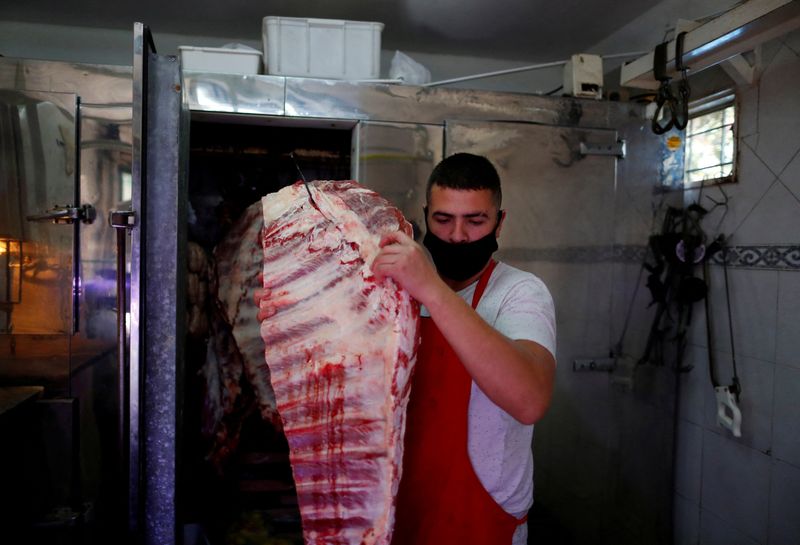
© Reuters. FILE PHOTO: Butcher Pablo Alberto Monzon carries a costillar (cow ribs) out of his fridge, at his shop, in General Pacheco, on the outskirts of Buenos Aires, Argentina May 19, 2021. Picture taken May 19, 2021. REUTERS/Agustin Marcarian
By Anna-Catherine Brigida and Lucila Sigal
BUENOS AIRES (Reuters) – Argentines are expected to eat the most beef in five years in 2023, extending the country’s reign as the No. 1 steak consumer per capita despite the painful impact of 109% inflation on food prices, a Rosario grains exchange report showed on Friday.
The major beef producer, where “asado” barbecues are a key part of the culinary culture and steakhouses dot city streets, has seen in recent years beef consumption dip as prices climbed and diners shifted to cheaper chicken and pork.
That, however, seems to be partly reversing, even in the face of one of the world’s highest inflation rates which has badly hurt spending power. Analysts expect inflation could hit 130% by the end of the year.
“Despite everything, the traditional asado remains one of the pillars of the local gastronomic tradition, and a must at most Argentine dinner tables,” the exchange said, adding likely beef consumption this year would be 53.1 kilograms per person.
The exchange said the relative cost of beef versus pork and chicken had dropped since 2021, though it remained elevated versus a historical average. Gross salaries were also slightly higher than in 2021, though again lower than historic averages.
The proportion of beef in meat consumption climbed this year to 46% from 44% two years ago. However, the amount of beef and its share is still far below peaks of some 68 kg per capita and over 70% in the past two decades.
The recent bump in the data underscores the importance of beef in Argentine culture, even as the highest inflation rate since 1991 has pushed some 40% of the population into poverty.
Source: Investing.com



























